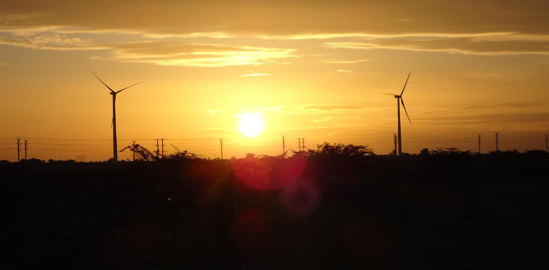Industry
- Wind
Continent
- Asia
Country
- India
Sustainable Development Co-Benefits
Social
- Jobs
- Welfare
Economic
- Energy
- Technology
| 9/29/2020 |  | 70 t |
| 9/29/2020 |  | 10 t |
| 9/29/2020 |  | 200 t |
| 9/26/2020 |  | 116 t |
| 9/26/2020 |  | 130 t |
| View all 31 | ||
5923
Wind Power Project in Rajasthan, India by M/s Devki Builders Pvt. Ltd.
31
The project activity consists of four Wind Turbine Generators (WTGs) of 1.5 MW capacities at Bastwa Mataji village, Jodhpur district, Rajasthan set up by M/s Devki Builders Pvt. Ltd.



